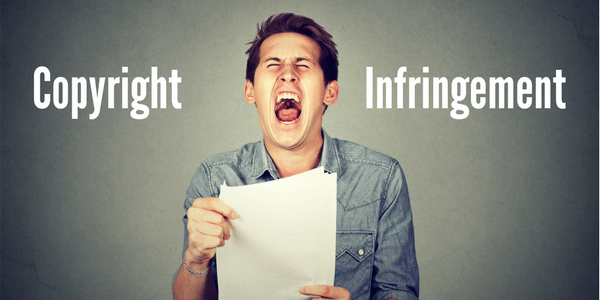
Filmmakers can become complacent about their exposure to copyright infringement lawsuits, especially if they focus on cases that are dismissed or settled out of court. However, a lawsuit can end up ruining a project, or a producer, with extravagant awards.
Last November, an appeals court upheld the damages awarded to Warner Bros. in their copyright infringement lawsuit. The victory was against a marketing and licensing agency that had used copyrighted images owned by Warner Bros.
The judgment was for over two and half million dollars.
Here are the details about the case from the Chicago Law Bulletin:
Art & Vintage Entertainment Licensing Agency (AVELA) lifted images of Warner Bros. characters from promotional material. The characters were classic—and copyrighted—figures including Dorothy and the Tin Man from the Wizard of Oz, Scarlett O’Hara from Gone with the Wind, and the animated archenemies Tom and Jerry.
AVELA then used the characters on lunch boxes, playing cards, t-shirts, and more without the consent of Warner Bros., which—unsurprisingly—landed the agency in court.
While it’s obvious that AVELA was treading on dangerous ground, this legal battle is important for filmmakers to consider. You may not produce t-shirts with copyrighted material. But your film may use the artwork, music, or ideas of another, creating costly legal risk.
In light of this case, here are a few important takeaways for filmmakers and production houses alike:
The Scope of Copyright Infringement Lawsuits
If your film has appropriated the intellectual property of another, the amount of financial risk can be huge.
Since Warner Bros. owns the copyright to the mentioned films and cartoons, AVELA had no legal right to reproduce the characters, much less profit from licensing them. Had AVELA licensed the characters from Warner Bros., there would have been no issue.
According to the Chicago Law Bulletin, the case was originally decided in Warner Bros. favor in 2009, but AVELA appealed on the basis that the award was too high. Even at $2.57 million, the appeals court didn’t see it that way.
As the article explains, AVELA had infringed on 257 individual copyrights. At $10,000 per infringement, the damages quickly added up.
And they could have been more.
The article explains that the circuit judge noted how poor recordkeeping kept the court from determining a more accurate figure and how the damages were within the range given by the Copyright Act.
Under this law, damages could have reached well over $7 million.
The lesson is clear for filmmakers. A copyright violation can leave you multiplying the costs of your damages instead of the amount of your profits.
The Types of Damages for Copyright Infringement Lawsuits
In this lawsuit, Warner Bros. collected on statutory damages from AVELA’s copyright infringement. However, it’s important to note that the media giant could have collected damages in a drastically different way.
According to U.S. copyright laws, Warner Bros. was entitled to two forms of monetary awards to choose from:
- Statutory damages. In the words of the copyright law, this allows the owner of the copyright to collect “damages for all infringements involved in the action, with respect to any one work.” This was the option chosen by Warner Bros.
- Actual damages and profits. This means the owner of the copyright can collect for the infringed copyright as well as for any profits made from the copyright infringement. The plaintiff only has to show the gross profits, and the burden of calculating that profit (deducting expenses and what portion isn’t attributable to the copyrighted material) falls on the infringer.
In other words, your film may suffer less quantifiable damages if the owner of the copyright chooses to demand the second option. This means that if your film is found to profit from copyrighted material, then a significant chunk of that profit could be subject to forfeit.
So, while it may seem comforting to read all the examples of copyright lawsuits that did not have a dire financial impact, your risk remains the same: the potential loss of an unknown amount of revenue.
Rather than roll the dice and hope for the best, protect yourself and reduce your exposure to copyright infringement lawsuits.
A film Clearance Package provides a comprehensive review and analysis of the risks associated with your project. We have numerous packages to fit every project’s needs and budget. We’ll help put you in the best possible position to profit from your success.

